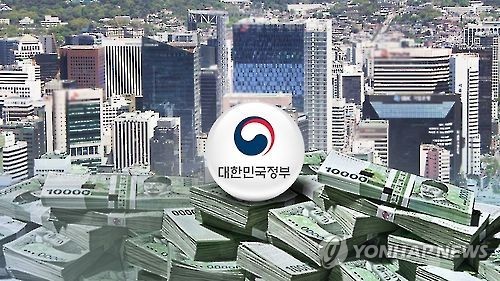South Korea's national debt surpassed 900 trillion won ($770 billion) last year largely due to the government's expansionary fiscal policy to cope with a years-long economic slump, data showed Tuesday.
The conservative administrations of Lee Myung-bak and Park Geun-hye have favored the issuance of debts to finance the fiscal expansion, instead of hefty taxes.
 |
This composite image alludes to South Korean government bonds. (Yonhap) |
The country's debt, which covers the central government's general and special accounts and funds, reached 918 trillion won at the end of 2016, according to the local financial investment industry.
It marks the first time that the national debt of Asia's fourth-largest economy has exceeded 900 trillion won.
The volume stood at 366 trillion a decade earlier.
Outstanding general debt rose from 274 trillion won in 2007 to 413 trillion in 2012 under the Lee administration.
The amount increased by 168 trillion won over the past four years to 581 trillion won at the end of 2016.
On the other hand, outstanding special debts grew by only 19 trillion won to 337 trillion won last year under the Park government. It contrasts with a 197-trillion-won rise to 318 trillion won between 2007 and 2012.
The Lee government issued lots of special bonds via public agencies to finance its flagship four river rehabilitation project, while the Park administration sold more Treasury bonds for supplementary budgets aimed at helping revitalize the economy, market observers said.
The current government is considering another round of massive extra budgets this year.
The Bank of Korea has a limited option, with the US expected to raise its key interest rates again in the coming months.
BOK Gov. Lee Ju-yeol earlier called on the government to take a more aggressive fiscal policy.(Yonhap)








![[Today’s K-pop] Blackpink’s Jennie, Lisa invited to Coachella as solo acts](http://res.heraldm.com/phpwas/restmb_idxmake.php?idx=644&simg=/content/image/2024/11/21/20241121050099_0.jpg)